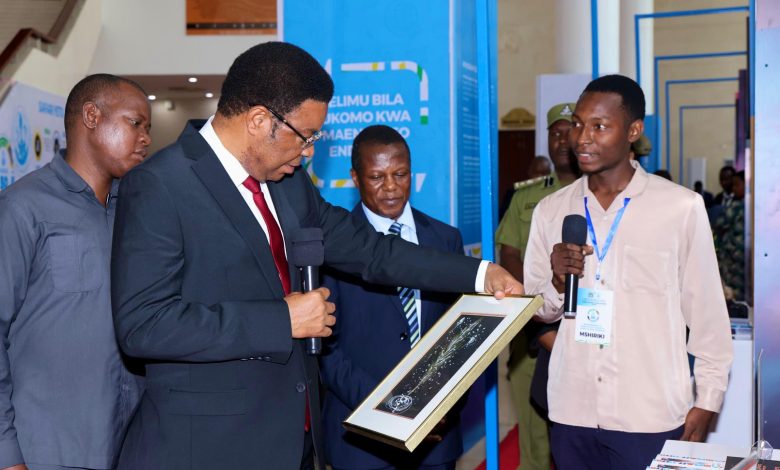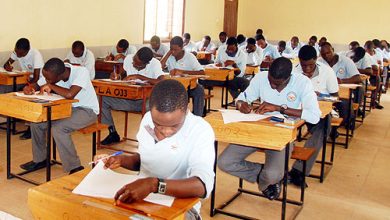Nyerere literacy legacy lives on

- PM lauds adult education’s 97.5pc success rate
DAR ES SALAAM: FIFTY years ago, Tanzania faced a profound challenge. In the years following independence, the country’s founding father, Mwalimu Julius Nyerere looked across the young nation and saw a sobering truth– 75 per cent of Tanzanians could neither read nor write.
That reality inspired a bold vision, one in which education would be the cornerstone of national development and self reliance. From that vision emerged one of the most transformative movements in Tanzania’s post-independence history– adult education.
Today, Nyerere’s dream remains central to the country’s development journey, as Tanzania celebrates the 50th anniversary of the Institute of Adult Education (IAE).
The golden jubilee was marked yesterday in Dar es Salaam, where government leaders, educators and development partners gathered to reflect on five decades of empowering adult learners, an achievement that has reshaped individual lives and contributed significantly to national progress.
Speaking at the commemorative event, Prime Minister Kassim Majaliwa said adult education plays critical role in building a sustainable and inclusive society.
“Adult education is not just about teaching basic literacy. It is a powerful engine for development, it increases income, improves health, strengthens civic participation and enhances social wellbeing,” he said.
Echoing the ideals of Mwalimu Nyerere, the Prime Minister noted that literacy is not an end, but a gateway to opportunity, growth and empowerment.
He directed the Ministry of Education, Science and Technology and the IAE to expand adult education access, particularly to marginalised and underserved communities, ensuring no one is left behind.
“We must broaden vocational and practical training. Knowledge without application is incomplete. By equipping people with real skills, we open doors to better jobs, higher incomes and greater selfreliance,” said Mr Majaliwa.
He also announced efforts to improve learning environments by constructing, renovating and equipping training centres, creating safe, inclusive and engaging spaces for adult learners.
The IAE was further tasked to invest in continuous research to identify emerging challenges and develop innovative, relevant educational solutions.
ALSO READ: PM directs Education Ministry to closely work with IAE as it hits Golden Jubilee
Reflecting on the past five decades, the Prime Minister commended the IAE’s progress in curriculum development and skills training tailored to Tanzania’s socio-economic realities, calling the approach practical, innovative and impactful.
He cited the success of literacy programmes in reducing illiteracy, promoting numeracy and delivering life skills that directly impact daily living as key examples.
Strong partnerships with local and international organisations, he added, have boosted resources, modernised teaching tools and extended services to rural areas and vulnerable groups.
“Empowering thousands of Tanzanians through vocational and entrepreneurship training has been a cornerstone of our strategy,” said Majaliwa.
He revealed that since the inception of adult education, the country has achieved a 97.5 per cent success rate in reducing illiteracy, transforming countless lives and driving broader social and economic development.
Recognising the shift to a digital world, Mr Majaliwa urged the IAE to embrace technology-driven learning models, such as online courses and blended learning, to ensure that distance and location are no longer barriers to education.
“ICT breaks down traditional boundaries. It enables every Tanzanian, regardless of where they are, to access knowledge. Let’s innovate for the future,” he said.
He reaffirmed that adult education is more than literacy, it enhances employability, fosters entrepreneurship, improves public health and empowers citizens to take part more actively in political and social life.
Minister for Education, Science and Technology, Professor Adolf Mkenda said the government has come up with several strategic education projects.
He noted that the Secondary Education Quality Improvement Project (SEQUIP) has successfully reintegrated 13,272 girls into the education system over the past five years.
Prof Mkenda also pointed to the Integrated Programme for Outof-School Adolescents (IPOSA), which has empowered 10,000 youths outside the formal education system with life skills, entrepreneurship and basic vocational training.
Earlier, the Director General of the Institute of Adult Education (IAE), Professor Philipo Sanga, acknowledged the progress made but also pointed out ongoing challenges.
He cited the lack of office space in Dodoma Region and appealed to the government for support in securing a suitable facility.
Prof Sanga also highlighted issues affecting adult literacy classes, noting that while many classes are established, they often collapse due to insufficient supervision.
He urged local councils to take responsibility for overseeing these adult education centres.
As Tanzania marks this important milestone, leaders are reaffirming their commitment to expanding the reach of adult education, ensuring its benefits illuminate the path for future generations.





